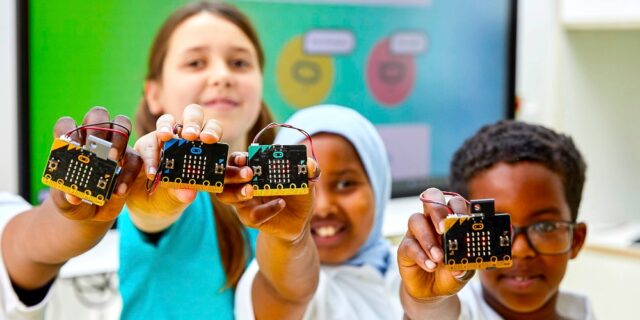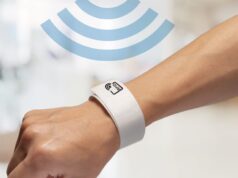The BBC micro:bit has emerged as a pioneering tool in the realm of computer education across the United Kingdom, signifying a leap forward in the way young learners engage with technology. This compact, programmable device is not merely a tool for instruction but a gateway to innovation, enabling students to explore the fundamentals of coding and digital creativity in an intuitive and accessible manner.
The BBC micro:bit’s introduction into the educational curriculum reflects a strategic move towards equipping students with essential digital skills, preparing them for a future where technology permeates every aspect of life.
By fostering an environment of hands-on learning, the micro:bit encourages students to think critically, solve problems creatively, and embrace the digital age with confidence and competence.
This article delves into how the BBC micro:bit plays a crucial role in transforming computer education in the UK, shaping the technologists, innovators, and digital citizens of tomorrow.
When Did This Unit Become So Popular?
In an era where technological literacy is as fundamental as reading and writing, the BBC micro:bit stands out as a beacon of innovation in the UK’s educational landscape.
Launched with the vision of demystifying the complexities of computing for children, this tiny device has made monumental strides in making digital education accessible and enjoyable for students across diverse backgrounds.
The micro:bit, a creation born from a partnership between the BBC and several tech giants, was designed with simplicity and inclusivity in mind. Its user-friendly interface and versatile functionality allow students to grasp the basics of coding through practical experience, turning abstract concepts into tangible outcomes.
By integrating the micro:bit into the curriculum, educators have unlocked a new dimension of learning where students are not just passive consumers of technology but active creators. From programming simple games to controlling robots and devising weather stations, the potential for innovation is boundless.
This hands-on approach not only cultivates technical skills but also enhances critical thinking, problem-solving abilities, and creativity, equipping students with the competencies needed to navigate the digital future confidently.
The initiative to distribute the unit freely to Year 7 students nationwide underscores a commitment to bridging the digital divide, ensuring that every child, irrespective of their socio-economic background, has the opportunity to become digitally fluent. As a result, the micro:bit has become a cornerstone of computer education in the UK, inspiring a new generation of learners to explore, innovate, and shape the world with technology.
Why is This Unit So Popular and How Can It Help Cultivate Future Innovators?
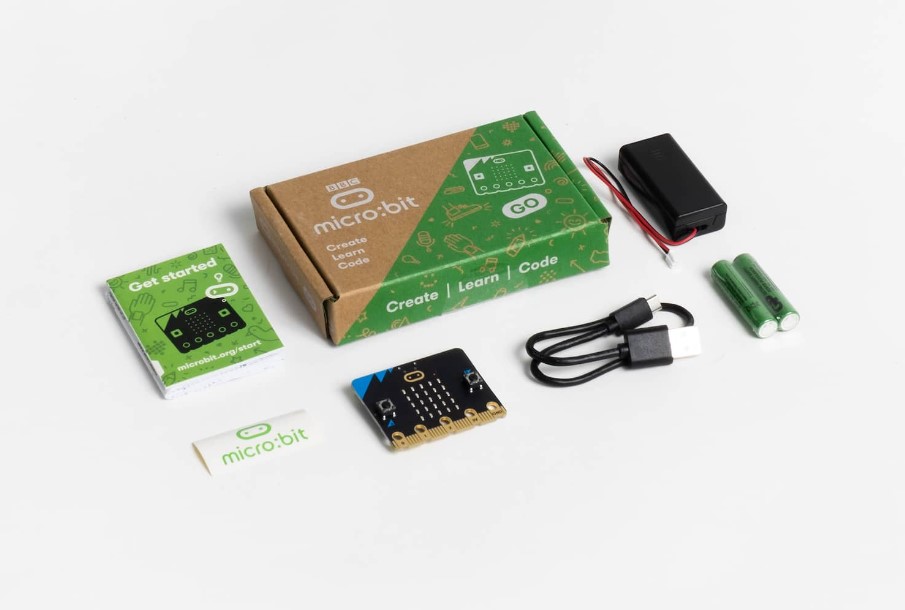
The introduction of the BBC device into the educational fabric of the United Kingdom marks more than a shift towards digital proficiency; it signifies a strategic investment in nurturing the innovators and problem-solvers of tomorrow.
This initiative goes beyond merely acquainting students with the rudiments of programming; it opens a broad spectrum of interdisciplinary learning opportunities. As you can see if you check elecfreaks.com, by incorporating this technology into projects that intersect with mathematics, science, art, and beyond, learners are encouraged to apply computational thinking in diverse contexts, fostering a holistic educational experience.
The micro:bit’s role extends outside the traditional classroom setting, catalyzing community and after-school clubs dedicated to technology and engineering. Here, students engage in collaborative projects, harnessing the power of teamwork to bring complex ideas to life. This environment not only sharpens their technical skills but also enhances their communication, leadership, and project management capabilities.
Moreover, the micro:bit foundation’s continuous efforts to update resources, develop new learning materials, and support educators ensure that the curriculum remains dynamic and aligned with the evolving digital landscape. These efforts ensure that the tool remains relevant and continues to offer fresh challenges and learning opportunities, keeping students engaged and motivated.
What is the Key to Success With This Device?
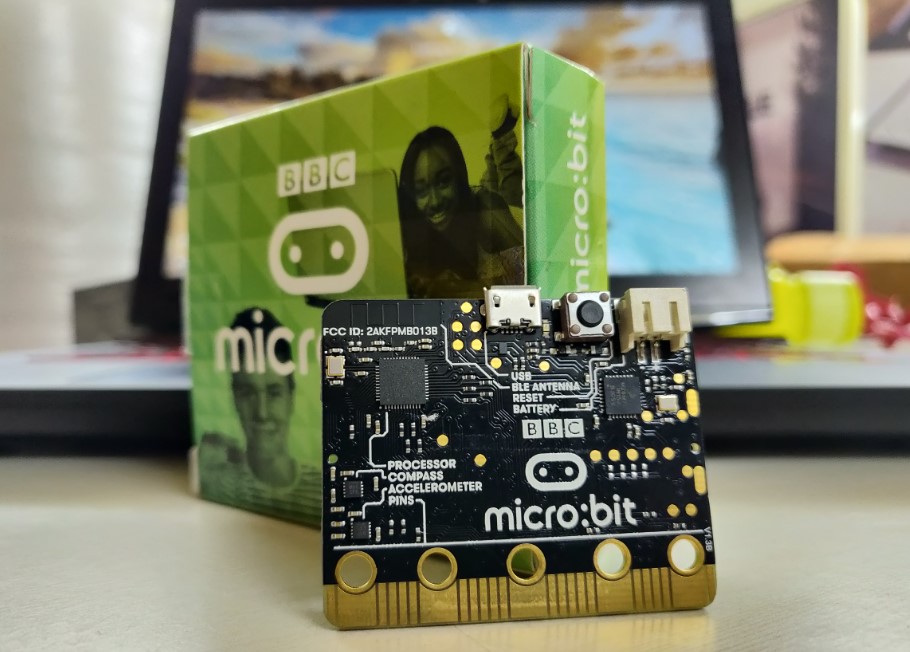
Central to the success of the BBC micro:bit in reshaping computer education in the UK is the empowerment of educators. Recognizing that the effectiveness of any educational tool is contingent upon the competence and confidence of those who wield it, significant resources have been allocated towards professional development.
This initiative ensures that teachers are not only proficient in using the micro:bit but are also adept at integrating this technology into a comprehensive learning experience.
Through workshops, online tutorials, and community forums, educators are equipped with a wealth of resources to navigate the challenges of teaching digital skills in an ever-evolving technological landscape.
These platforms provide a space for teachers to share experiences, strategies, and lesson plans, fostering a collaborative spirit that enriches the learning environment for students.
Moreover, the emphasis on pedagogical flexibility allows teachers to tailor their instruction to meet the unique needs and interests of their students, making learning more engaging and effective.
The impact of these efforts is profound, transforming teachers from traditional instructors to facilitators of innovation. They are able to inspire their students not just to learn about technology, but to experiment, create, and imagine the possibilities it holds. In doing so, they are laying the foundation for a generation that is not only technologically literate but also capable of leveraging digital tools to address the challenges of the future.
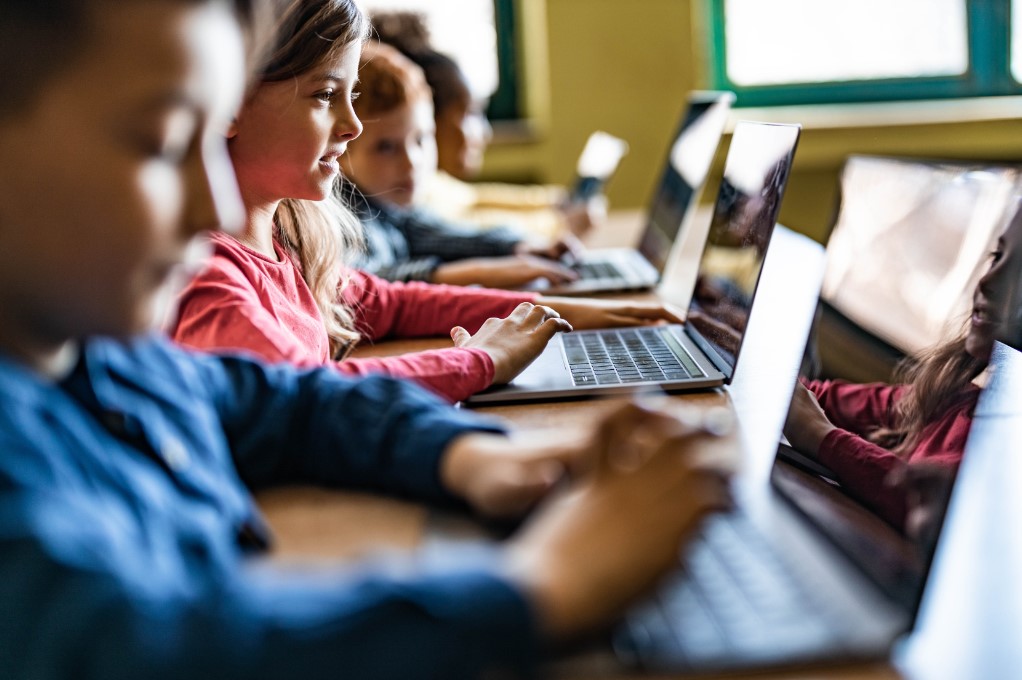
Thus, by empowering educators, the BBC micro:bit initiative is amplifying its reach and effectiveness, ensuring that the benefits of digital education are accessible to all students across the United Kingdom.
This holistic approach is what makes the micro:bit more than a mere educational tool—it’s a catalyst for change, driving forward the nation’s agenda for a digitally empowered future.
The BBC unit has proven to be a transformative force in the UK’s approach to computer education, serving as a pivotal tool for engaging young minds in the digital age. By offering a hands-on experience with coding and technology, it empowers students to navigate the complexities of the digital world with confidence and creativity.
The initiative’s success hinges not only on the device itself but also on the robust support network for educators, ensuring that the micro:bit’s potential is fully realized in classrooms across the country.
As we look to the future, the device stands as a testament to the power of innovative educational tools in shaping a generation equipped to meet the challenges of a rapidly evolving technological landscape.
It underscores the importance of investing in digital literacy from a young age, laying the groundwork for a future where technology enhances every aspect of our lives.

